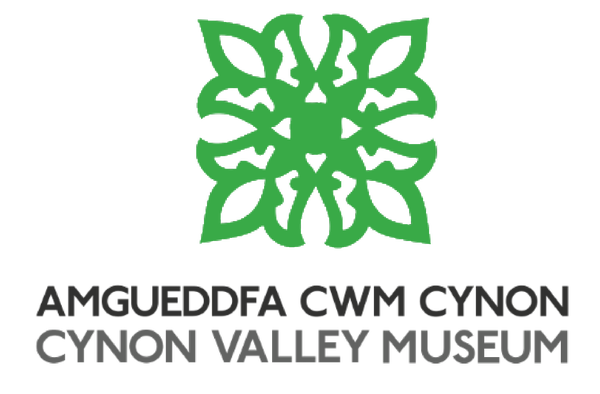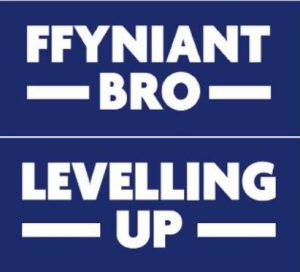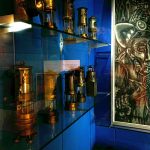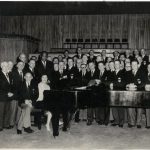The old Italian cafes of Valleys’ towns and villages evoke images of cosy, friendly, and warm establishments where you could go with friends and family to relax, eat, and drink. Many of us have such fond memories. You would have an authentic, homely experience far removed from the corporate coffee chains dominating our communities today. The original Italian run cafes were a key contribution to the social and cultural life of South Wales by the Italian community, although their numbers have sadly declined significantly. Yet such are the ties between the two nations, ‘The Welsh are the Italians in the rain’, to quote journalist Rene Cutforth (BBC, 2008). Indeed, journalist Pamela Peto observed in 1990 that “The greatest concentration of Italian cafés outside of Italy is in Wales” (Joel Denker, undated). This may not be true now, yet their legacy of enriching Welsh life remains.
Early Italian migration to Wales:
Whilst it is true that Italians have been moving to Wales for work and a better life since the 18th century, it was the Italians who settled here at the turn of the 20th* century who opened the first refreshment and confectionary shops in South Wales (Welsh Italians, undated). According to the census data, it was not until the last decades of the 19th century that the number of Italian-born residents in Wales exceeded a few hundred (J Davies, 2020).
Bardi
The original Italian immigrants were single men and mainly came from the mountainous area around the hill town of Bardi, near Parma in the region of Emilia Romagna; residents were known as the Bardigiani (Denker, undated). With their agricultural background as peasants, tenant farmers, and skilled small tradesmen, and desperate for a better life, they demonstrated a talent for small business (Denker, undated).
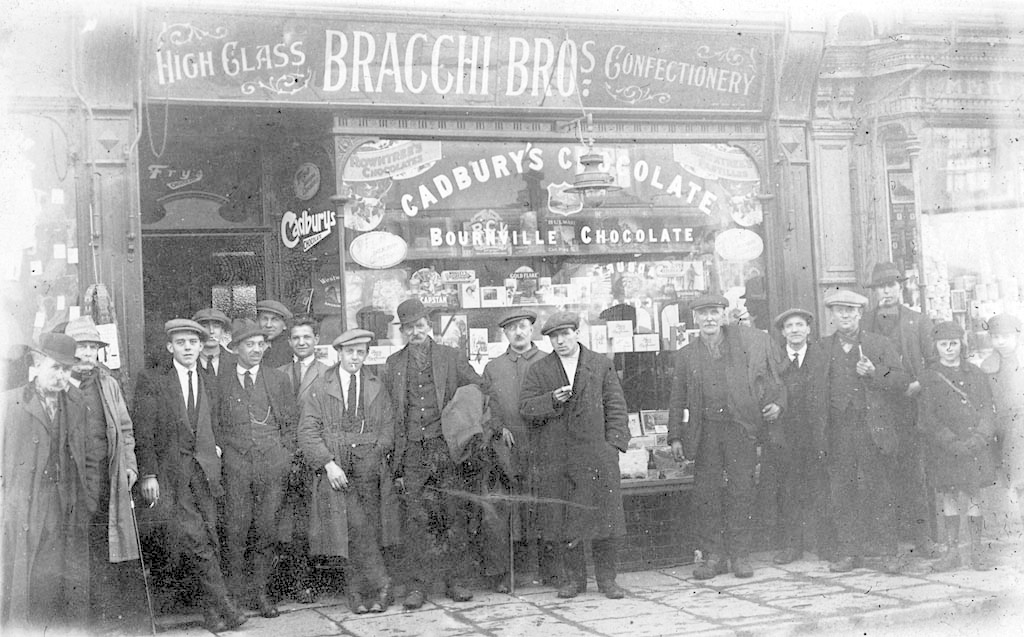
Image 01/b/076 Bracchi Brothers Confectionery Store, Canon Street, provided by kind permission of Rhondda Cynon Taf Library Services.
The Bracci Family: Early Innovators
It was the Bracci family who launched the first Italian café business in the Rhondda Valley in the 1880s – 1890s and it was this surname which was used to describe all Italians who settled in Wales to set up cafes, ice-cream parlours and fish and chip shops (Nation Cymru, 2021). The term ‘Braccis’ for the cafes and fish and chips shops was common in the Rhondda and Cynon Valleys and is still within some residents’ living memories (J Davies, 2020).
1900 – 1920s
By 1921, there were over 1,500 Italian born residents, mainly in the counties of Glamorgan and Monmouthshire (J Davies, 2020). Whilst coal mining did attract some Italians, between 1900 – 1920 the majority worked in the café and ice-cream trades and had the greatest impact on the social life of South Wales (J Davies, 2020).
The establishment of Italian Catering Businesses in the Cynon Valley
The Cynon Valley experienced this development with the first Italian catering businesses being opened in Aberdare in 1902 by the Bracchi Bros, who ran an Ice Cream Manufacturers on Canon Street (Cynon Valley History Society, 2003).
The first Italian Cafés in Aberdare were opened by families including the Ferrari family in 1927 and the Sidoli’s in 1930 (CVHS, 2003). By this time these businesses had become family enterprises with relatives coming over from Bardi (Denker, undated). The Ferrari Café was situated on 2 Canon Street, Aberdare. Included in our collection are two photographs of this business dated from this period, with the keepers smiling proudly at the camera.
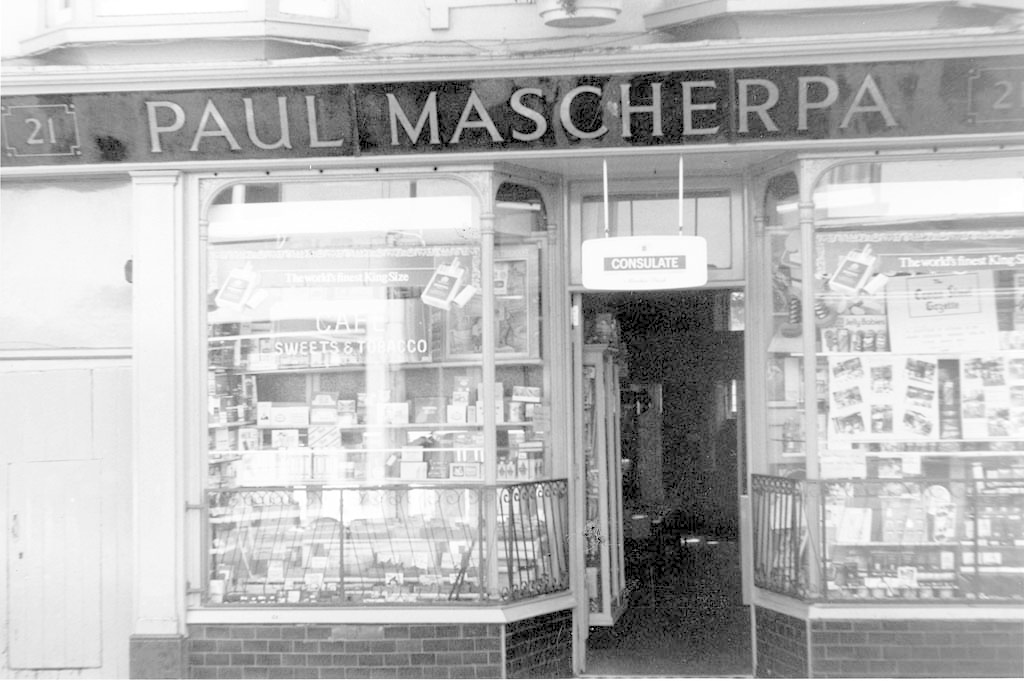
Image 01 b 056 provided by kind permission of Rhondda Cynon Taf Library Services.
The Mascherpa Bros. owned a Confectioners and Tobacconists, 21 -24 Canon Street, and A. Sidoli & Sons had the Express Cafe, 3 High Street, and The Cosy Corner Refreshment Bar, 48 Gadlys Road, opposite Park Cinema (CVHS. 2003). Italian served fish and chips arrived with Carpanini’s, “For good Fish and Chips”, Duke Street (CVHS, 2003). Then in 1933 Servini’s Cafe – Restaurant was opened on 2 Cardiff Street (CVHS, 2003). As the Cynon Valley History Society has observed, all these businesses astutely situated themselves near parks, cinemas, and railway stations and thus subsequently grew in trade (CVHS, 2003). Further Italian owned and operated businesses in the Cynon Valley followed including Pino’s Café in Mountain Ash in 1954 (Servini, 2020), as well as cafes in Penrhiwceiber and Abercynon established over the years.
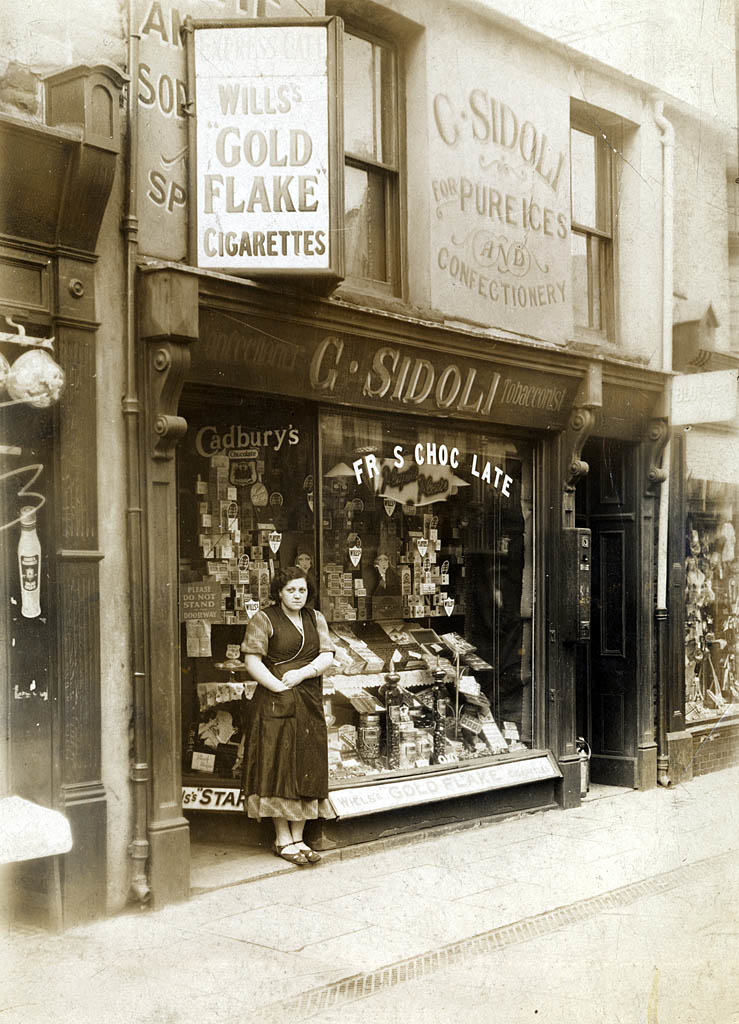
Image 2554 provided by kind permission of Rhondda Cynon Taf Library Services.

Image 2559 provided by kind permission of Rhondda Cynon Taf Library Services.
Importance of Café Culture to the Community
The Italian cafes of Wales were a very important part of Welsh cultural life and a popular meeting place for socialising, music, and political discussion, even appearing in the literary works of Idris Davies and Gwyn Thomas (J. Davies, 2020).
As David Walter Morris recollects in his article about Aberdare in the 1920s, Ferrari’s café was a popular meeting space:
“In the early thirties Ferrari’s Café was the morning meeting place for those on home on holiday from college for the Ferraris did not mind if you made your cup of coffee last an hour or more.” (‘Aberdare in the 1920s: A Walk-Through Part of the Town’ by David Walter Morris)
This anecdote demonstrates the affection and high regard in which the cafes were held by the local community.
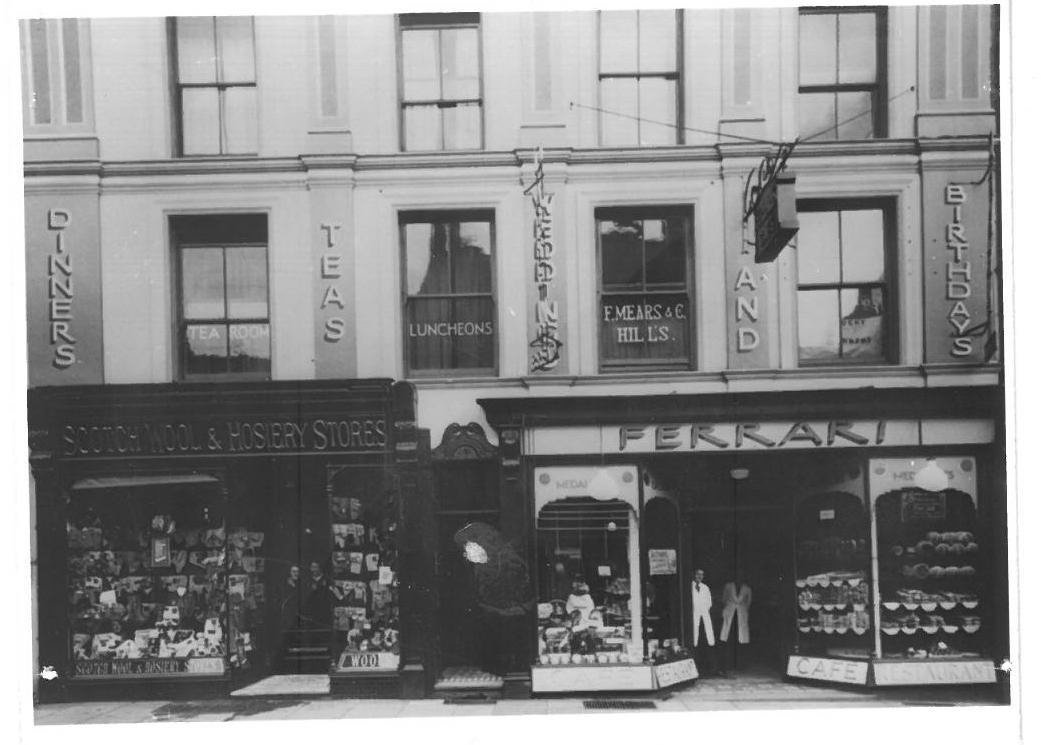
ACVMS 1997.2309 Ferrari Cafe, Aberdare
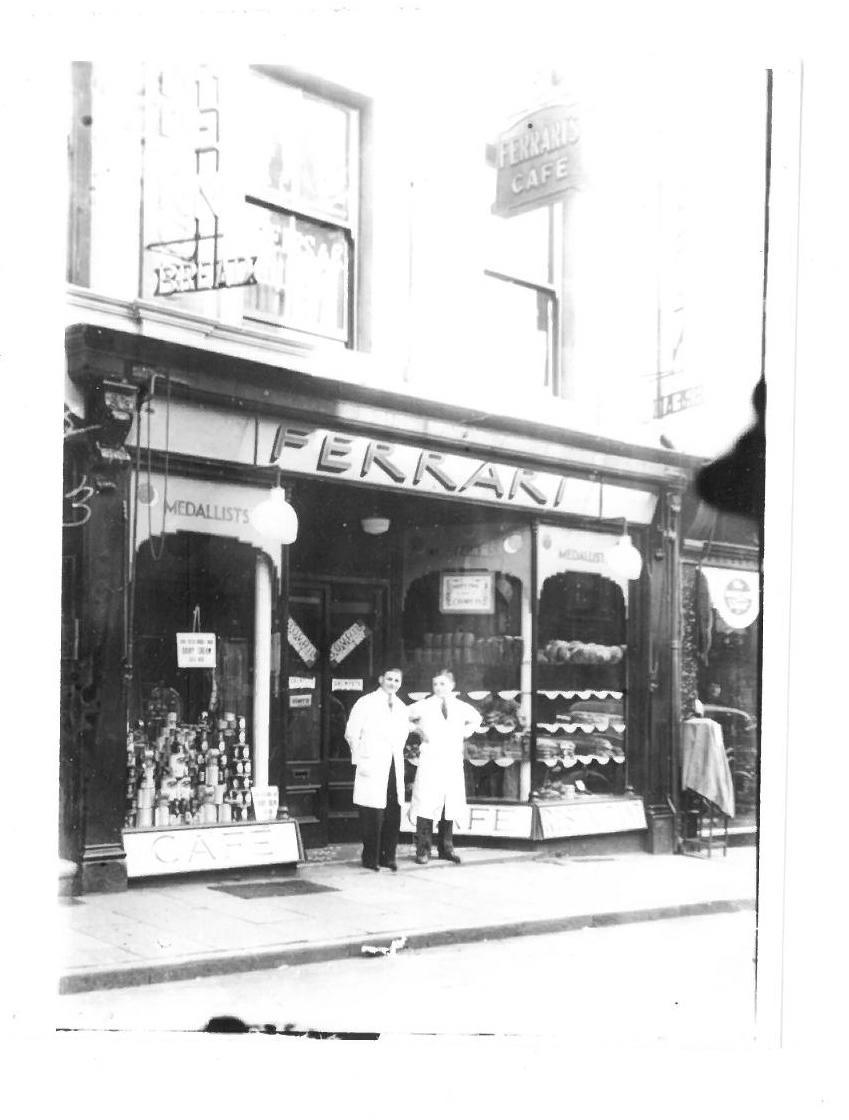
ACVMS 1997.2310 Ferrari Cafe, Aberdare
Cafe Menus
A typical menu would include simple, familiar fare designed to appeal to the local working-class community rather than feature Italian food – with the important exception of ice cream, more of which shortly (Denker, undated). Typical meals, snacks and drinks served might include beans on toast, pork pies, candy, tea, and oxo as drinks, with coffee only becoming a regular feature later, in addition to the availability of cigarettes for sale (Denker, 2020).
In our collection, we have this menu from Ferrari’s Café and Restaurant highlighting ‘confectionary, luncheons and teas, cream goods, high-class chocolates and cigarettes, and tobacco’
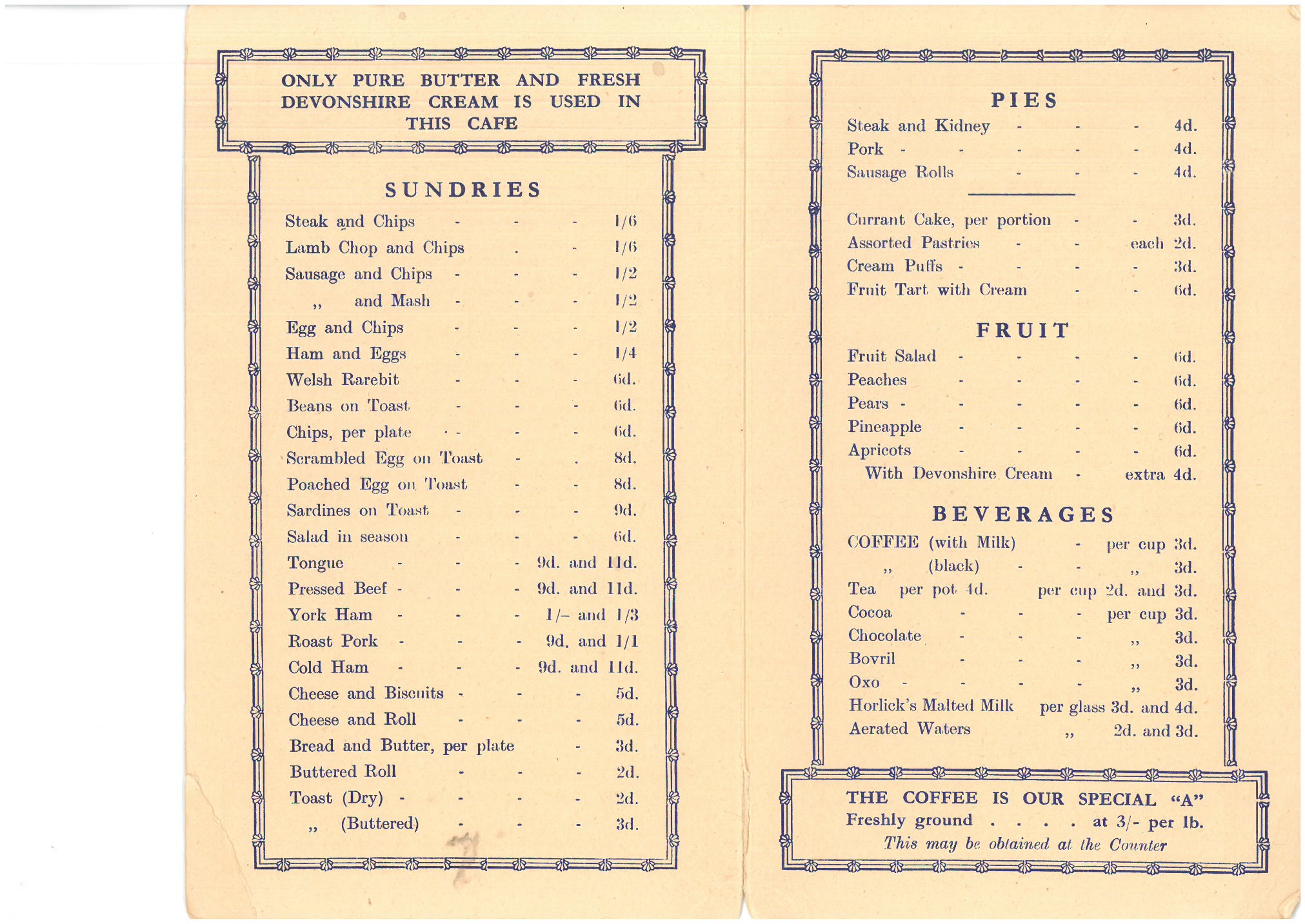
ACVMS 2013 139a
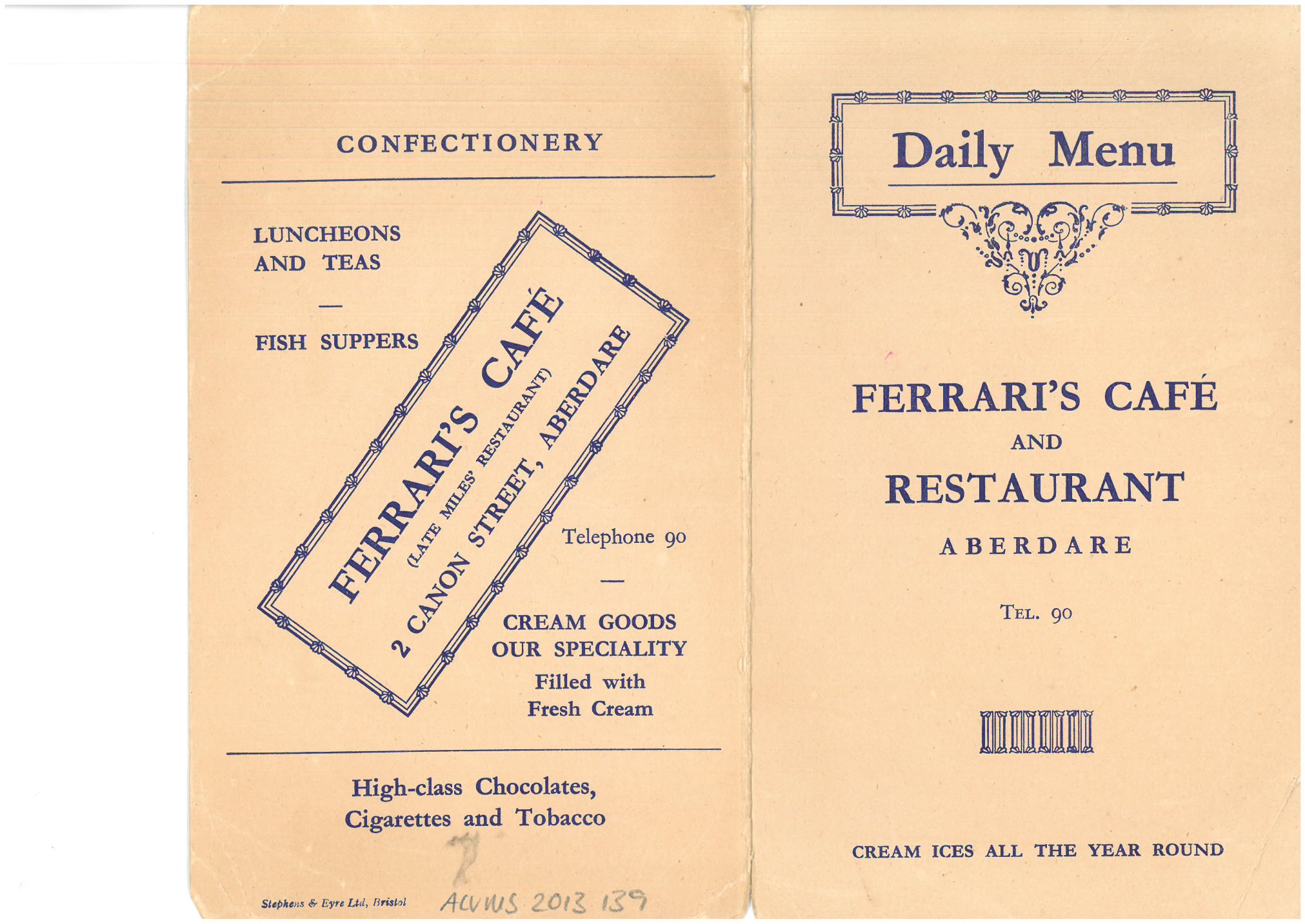
ACVMS 2013 139b
Ice cream, that much loved and taken for a granted treat today, was a gift to us from the Italians; it had been an ‘exotic’ product for the wealthy but was introduced in Wales in the cafes and ice-cream parlours, made affordable and accessible, ‘cranked out by families with hand-operated machines’ (Denker, undated).
On another menu, Ferrari’s Restaurant promotes their ice-cream based sundaes and drinks as health products, emphasizing the fresh fruit content (or prepared with ‘the finest, crushed fruits’) with this colourful image of a pineapple and with an emphasis also on the modernity of their storage methods, designed to give the impression that these were high quality and nutritious products.
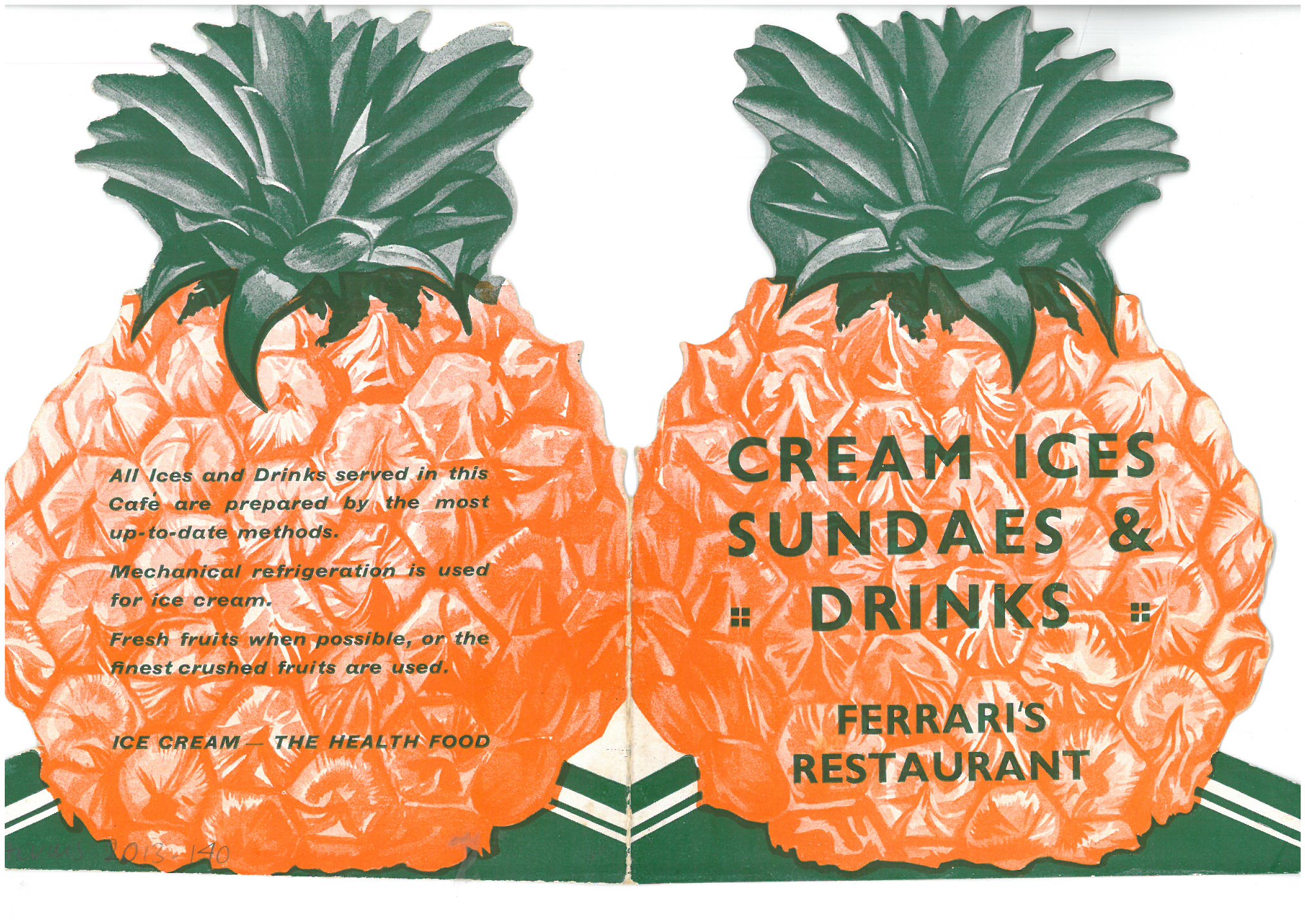
ACVMS 2013 140a
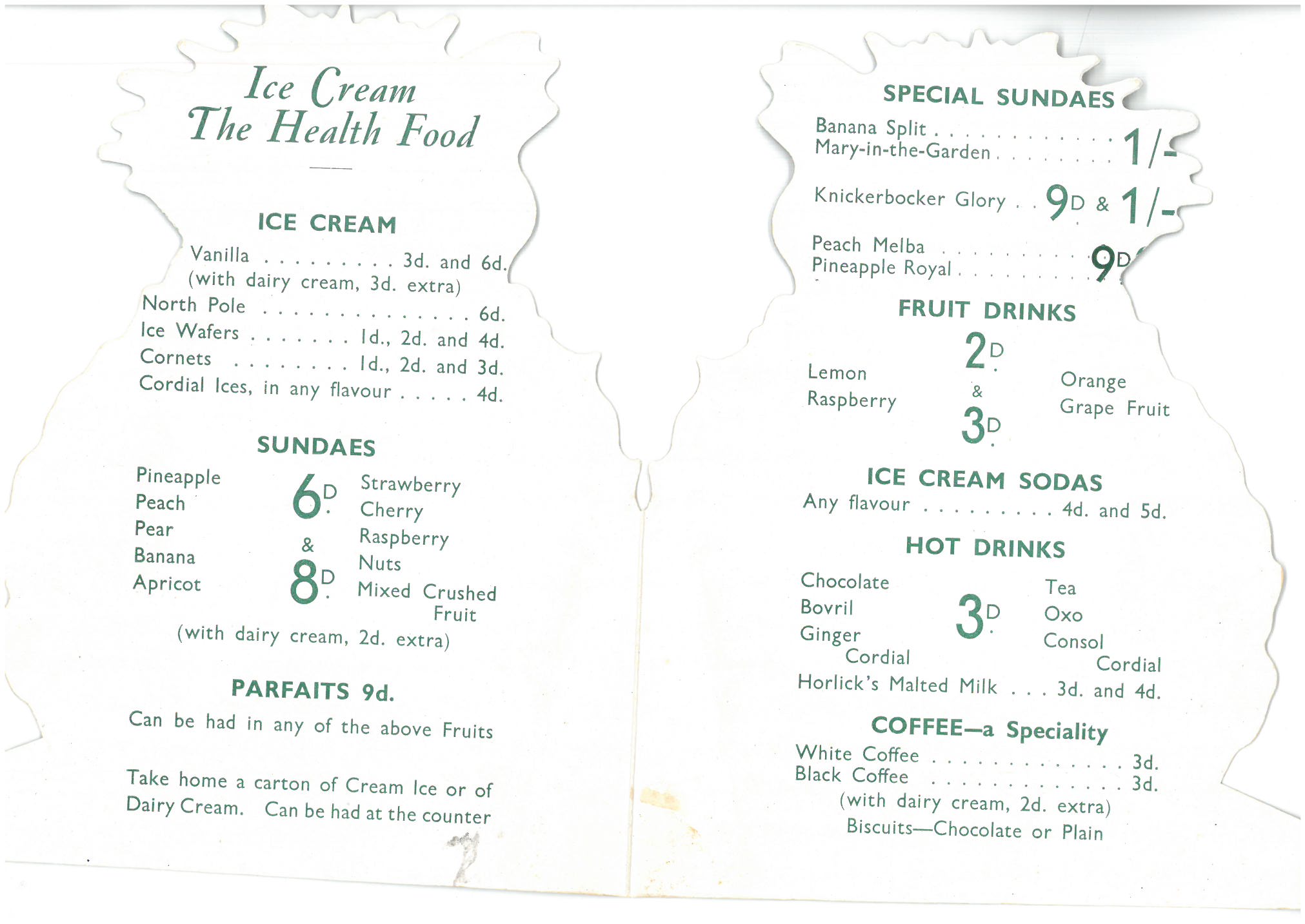
ACVMS 2013 140b
According to historian Colin Hughes, author of Lime, Lemon, and Sarsaparilla, the cafes were popular not only for the food, drinks, and tobacco products but because of their lively atmosphere and the absence of pressure to buy anything (Denker, undated). Another significant factor in these businesses’ early success was that they didn’t sell alcohol; during an era when Welsh Nonconformist culture was dominant, the business owners marketed their venues as an alternative to public houses, with some styling them as ‘Temperance Bars’ (Davies, J, 2020).
However, the Italian café owners and workers faced challenges along the way and their good fortune often depended on the strength of the industrial economy which supported them (Davies, J, 2020). Nevertheless, the biggest challenge to the community came with the impact of the rise of fascism and the war in Europe when a lack of status as a British national spelled a period of persecution and suffering for Italian-born men in the U.K (Davies, J, 2020).
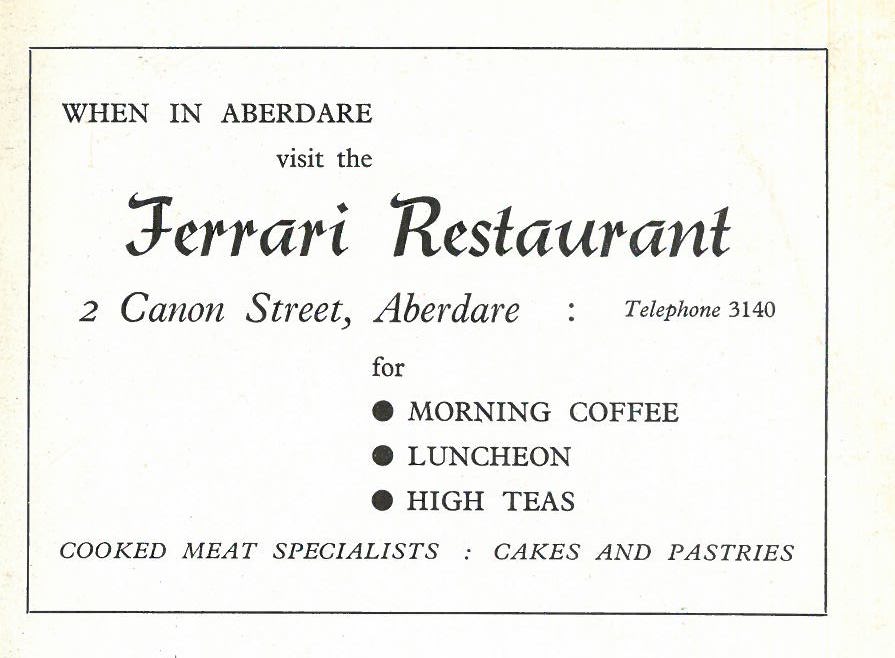
Advert from the Aberdare Urban and District Handbook and Directory 1960
Persecution during World War 2 and the tragedy of the sinking of the Arandora Star
Any account of the history of Italians in Wales must acknowledge these dark times when many Italians living in the U.K. experienced prejudice and backlash because of local suspicions that they were fascist sympathisers, including one incident of a café window being smashed in Aberdare (Davies, J, 2020). The U.K. government fostered this hostility by their policy of arresting and interning all male Italians who had not yet taken out British nationality, treating them as enemy aliens (Davies, J, 2020). Considered dangerous, mostly incorrectly, these men were sent to Canada and Australia (Jones, S, undated).
Then tragedy struck in early July 1940 when The Arandora Star, a liner requisitioned to transport Italian and German internees, was torpedoed by a German U-boat while on route to Canada (Davies, J, 2020). Over 800 people were killed, 470 Italians and 53 of those from Wales (Davies, J, 2020). There is now a memorial for this terrible event in St David’s Metropolitan Cathedral, Cardiff (Davies, J, 2020).
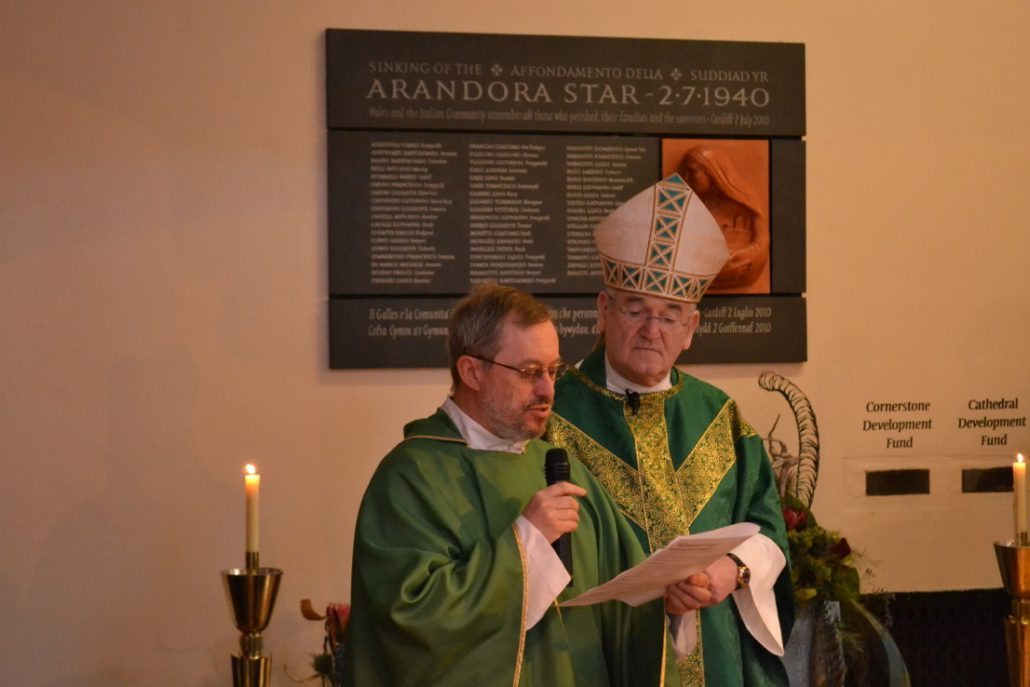
Image used with kind permission by Cardiff Cathedral.
Survival and Post-War Years
Nevertheless, the cafes which managed to survive the war years did well with Italian-run fish and chip shops thriving because this meal was one of the few foods unrationed during the time (Davies, J, 2020).
The Italian / Welsh families which continued – and in a few places continue – to run these small businesses always maintained links to their beloved Bardi. As a student in a local Catholic comprehensive in the 1990s, I remember listening to my Italian-Welsh schoolmates (many of whom were the children of valleys’ café owners) speak with excitement about their annual summer holidays there and their enthusiastic embrace of the Italian language.
Italian-Welsh-owned businesses expanded and became very successful. The original Ferrari’s Café and Bakery of Aberdare would go on to open bakeries across Wales. Below is a photo of its bakery employees indicating the scale of its success at that time.

ACVMS 1997.2894
It was a well-known local employer of hundreds of workers including at its main production site in Hirwaun, Aberdare. However, the company went into administration in 2006* and by November 2008 only 25 of its stores across Wales remained open when it was announced that the company had gone into liquidation with the subsequent loss of the remaining jobs, a victim of the great recession of 2008 (Wales Online, 2008). Nevertheless, the Ferrari family themselves are still in the catering business with Giancarlo Ferrari, representing the third generation of this legendary family originally based in Aberdare, now running Ferrari’s Coffee which imports and blends coffee from Italy and based in Bridgend (Llewellyn-Jones, 2014).
The picture for today:
Italian cafes, chip shops, and ice cream parlours have been embedded in Welsh cultural and social life since they were first established here, but there has been a dramatic decline. In fact, whereas once there were over 300 Italian cafes in Wales before World War 2, there were only an estimated eleven cafes still run by the same families in 2020 according to BBC reporter Nick Servini (Servini, 2020).
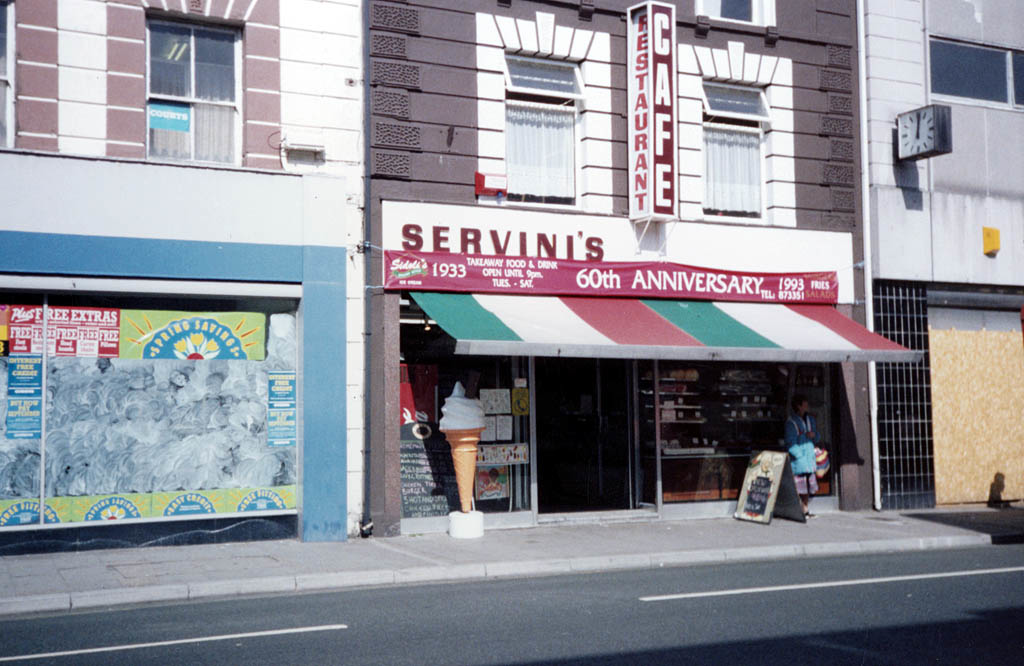
Image 01 c 189 provided by kind permission of Rhondda Cynon Taf Library Services
Servini’s grandfather used to run Servini’s Café in Aberdare and the journalist himself once worked there as a teenager (Servini, 2020). However, many of the children and grandchildren of these proud, hardworking small business owners, chose not to continue with their family businesses and instead pursued different career paths (BBC, 2019). Fortunately, Servini’s café of Aberdare remains open and is still a family business, although it was due to be sold in 2020 (Servini, 2020). Nevertheless, many of these cafes and other associated catering businesses have increasingly been replaced by chains like Costa’s, a business set up by brothers who came from a neighbouring town to Bardi (Servini, 2020). Although the overall decline of the original cafes seems irreversible, the contribution these Italian migrants and their families have made in Wales, including the Valleys, is invaluable and well worthy of honouring for future generations.
For further reading on this subject visit our museum shop to purchase a copy of ‘Lime, lemon & Sarsaparilla: The Italian Community in South Wales 1881 – 1945’ by Colin Hughes.
Blog written by Museum Assistant, Sarah Mayo
References
Web pages:
Servini, N / BBC. (2020). Why Café Culture Has Rich Italian Flavour In Wales. BBC News [15.04.2022] Available from: Why cafe culture has rich Italian flavour in Wales – BBC News
Walter Morris, D / Aberdare Boys’ Grammar School., (1996). Aberdare in the 1920s [online]. The Aberdare Boys’ Grammar School [15.04.2022]. Available from: A walk through two Aberdare Streets in the mid-1920s (abgs.org.uk)
Unknown, / Cynon Valley History Society., (2003). Hanes Newsletter Issue No 25 Winter 2003 (14.04.2022). Available from: Cynon Valley History Society (cvhs.org.uk)
Unknown, / BBC. (2008). Italian Immigration. BBC website (archived page). [13.04.2022]. Available from: BBC – Wales – History – Themes – Italian immigration
Jones, S / GWales.com (undated). Lime, Lemon and Sarsaparilla. The Italian Community in South Wales 1881-1945 – review. GWales [12.04.2022]. Available from:www.gwales.com – 9781854110831, Lime, Lemon and Sarsaparilla ? The Italian Community in South Wales 1881–1945
Chezzi, B (undated). The First Adventurers. Welsh Italians. [15.04.2022]. Available from: Welsh Italians
Unknown, / Nation Cymru., (2021). The Story of the Bracchi – when the Italians arrived in Wales. Nationa Cymru. (13.04.2022]. Available from: The story of the Bracchi – when the Italians arrived in Wales (nation.cymru)
Blogs:
Davies, J., (2020). Italian migration and the Italian cafes of South Wales. South Wales Miners’ Library [online]. 25 June 2020. [Viewed 14.04.2022]. Available from: Italian migration and the Italian cafés of South Wales | South Wales Miners’ Library (wordpress.com)
Joel Denker (undated). I Scream, You Scream: Italian Peddlers and Coal Miners. Food Passages [online]. Undated. [13.04.2022]. Available from: Italians in Wales – Food Passages
Newspaper Article – Online/electronic:
Author Surname, Initial(s)., (Year). Title of article. Title of Newspaper [online]. Date (Day Month). Date Updated (Day Month Year, Time). Page number (if available). [Date viewed]. Available from: URL
Llewellyn-Jones, R., (2014). Secrets of the Welsh Coffee Business that’s been keeping Customers happy for Generations. Wales Online. [online]. 9 April. [Viewed 14 April 2022]. Available from: Secrets of the Welsh coffee business that’s been keeping customers happy for generations – Wales Online
Unknown,., (2008). Ferrari’s Bakery Goes Into Liquidation. Wales Online [online]. 28 November [Viewed 14 April 2022]. Available from: Ferrari’s Bakery goes into liquidation – Wales Online
Unknown,. BBC (2019). Treorchy Italian Café to Close After 84 Years. BBC [online]. 25 May 2019 [Viewed 15 April 2022]. Available from: Treorchy Italian cafe to close after 84 years – BBC News
Background reading:
Building Italian communities: caterers, industrial recruits and professionals / Our Migration Story
